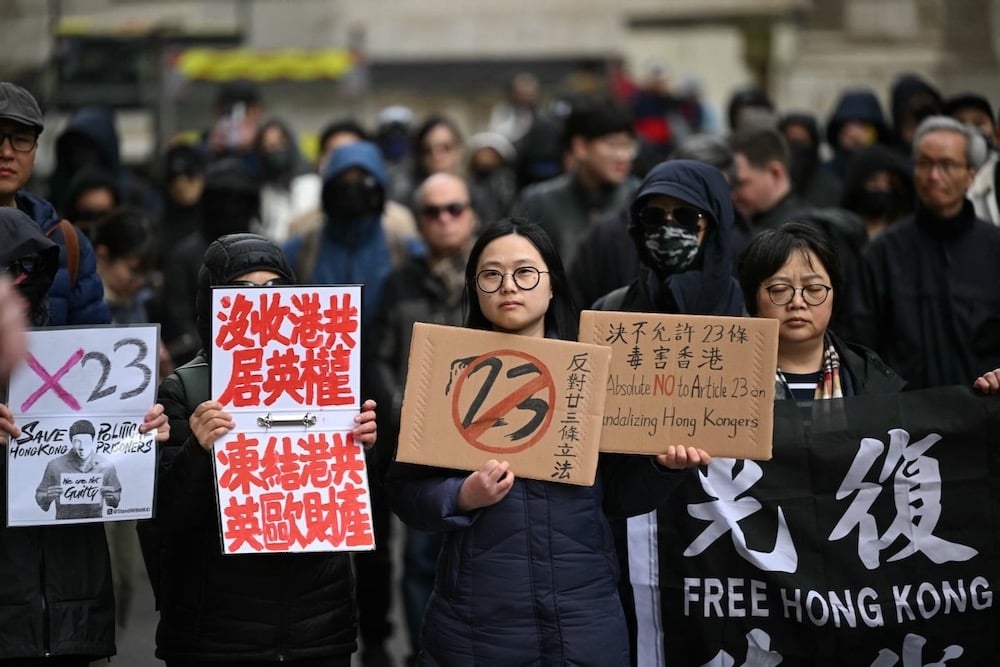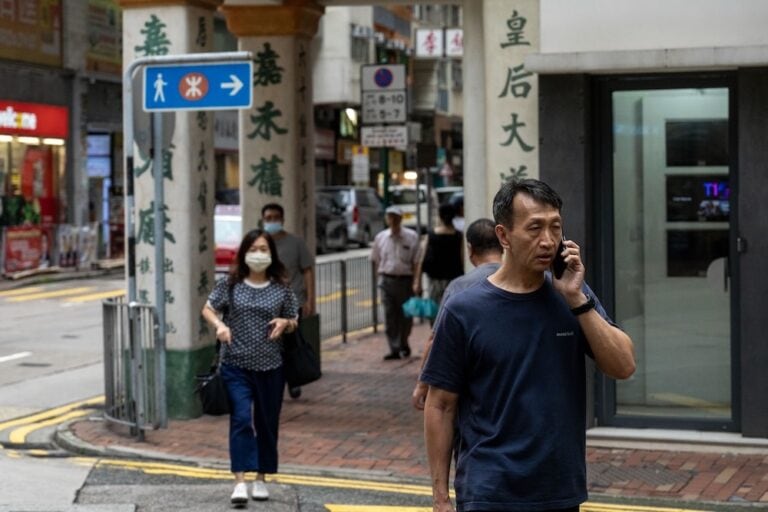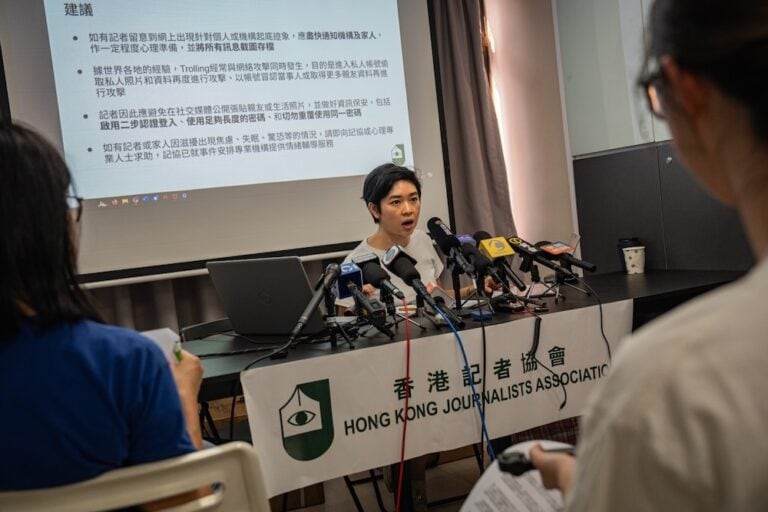The law opens the door to further arbitrary arrests and detentions while escalating censorship, creating a global chilling effect.
This statement was originally published on cpj.org on 22 March 2024.
As a new national security law goes into effect in Hong Kong on Saturday, CPJ was among 145 groups across the globe that denounced the legislation, which could deepen a crackdown on human rights and further suppress media freedom in the city.
Enacted under Article 23 of Hong Kong’s mini-constitution, the law punishes offenses ranging from theft of state secrets to sedition. The statement said this could make journalism “even riskier” and intensify censorship in the Asian financial hub.
Once a beacon of press freedom in Asia, Hong Kong has seen a dramatic decline with journalists arrested, jailed, and threatened since Beijing implemented a national security law in the city in 2020. Among those jailed includes Jimmy Lai, founder of the now-shuttered pro-democracy newspaper Apple Daily.
The new security law, passed by Hong Kong’s legislature on Tuesday, expands on the 2020 Beijing-imposed legislation.
Joint Statement to Oppose Article 23
We, the undersigned organizations, firmly oppose the passage of the Safeguarding National Security Bill, commonly referred to as “Article 23,” set to be enforced in Hong Kong this Saturday, March 23. We condemn the Hong Kong S.A.R. government’s plan to dismantle Hong Kong’s autonomy under the guise of “national security,” which further exacerbates the existing crackdown on human rights.
Article 23’s vague and broad definitions of crimes adversely impact not only individuals facing political arrests and prosecutions, but also everyone else in Hong Kong. The law opens the door to further arbitrary arrests and detentions while escalating censorship, creating a global chilling effect.
Article 23 is designed to impact an unprecedentedly wide range of people. The law, for example, defines the crime of “espionage” as applicable to those who, “with intent to endanger national security,” obtain, collect, or possess information that is “directly or indirectly useful to an external force” (clause 41). It also broadly criminalizes acts with “seditious intention,” which includes an intention to bring anyone in Hong Kong “into hatred, contempt or disaffection” against the Chinese and Hong Kong governments, institutions or constitutional order. With such low thresholds for prosecutions, Article 23 could provide a pretext for even more politically-motivated prosecutions and convictions.
Article 23 exacerbates the persecution of political prisoners and compounds the existing human-rights violations under the National Security Law (N.S.L.). The new legislation reinforces a separate judicial process for political cases, which involves appointed national security police officers in addition to handpicked prosecutors and judges, and deprives suspects of important procedural protections that were once available under Hong Kong’s legal system. Political prisoners charged under the N.S.L. have already been routinely denied bail, subjected to months of pre-trial detention, and deprived of the right to a jury trial. The new law further undermines these procedural rights by allowing the police to not only extend the period of detention without charge from the current 48 hours to a further 14 days, but also limit suspects’ access to counsel.
In addition to those facing political persecution, international businesses and Hong Kongers not directly involved in politics will also feel the impact of Article 23, as the law intensifies existing censorship. Following the N.S.L., the Hong Kong government forced major media outlets, such as Stand News and Apple Daily, to shut down. With the passage of Article 23, investigative journalism and reporting on “sensitive” political issues – given the broad definitions of “state secrets” and “sedition” – become even riskier. Article 23’s chilling effect on the freedom of expression extends to the Hong Kong diaspora globally, as the new law applies to Hong Kong residents anywhere in the world. The law’s extraterritorial implications will undoubtedly set the stage for heightened transnational repression.
The S.A.R. government expedited the passage of Article 23 despite mounting international pressure to uphold human rights. The U.N. Human Rights Committee issued a list of recommendations in 2022, urging the S.A.R. government to prioritize human rights. During the Universal Periodic Review on China in January this year, eight U.N. member states also called on the People’s Republic of China to repeal or review the N.S.L. Despite these clear and urgent appeals, the S.A.R. government opted to expedite the passage of Article 23 – clearing all legislative hurdles within 50 days of the initial public consultation.
We call on governments around the world and the international community to:
1. Impose sanctions on Hong Kong and Chinese officials responsible for undermining the rule of law in Hong Kong, particularly those involved in the passage of the two pieces of “national security” legislation;
2. Review the status of the Hong Kong Economic and Trade Offices globally, with an eye towards shuttering their operations;
3. Offer asylum and other humanitarian pathways and provide temporary travel documents to Hong Kong human-rights defenders, especially those who have been labeled by S.A.R. authorities as “absconders” and are likely to face passport cancellation in the near future.



